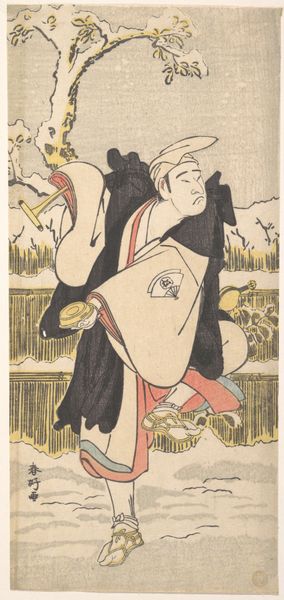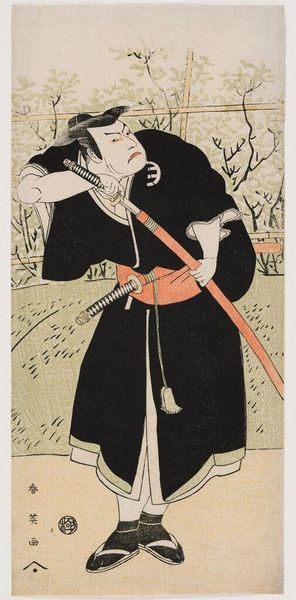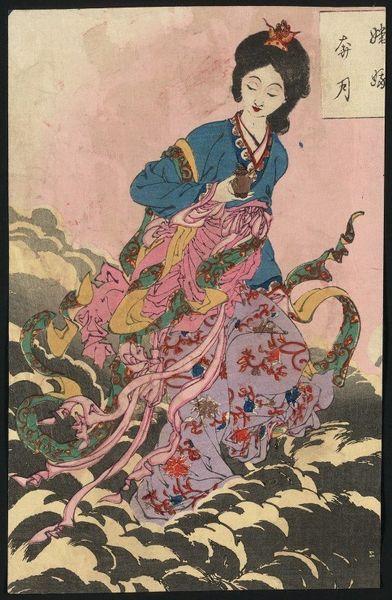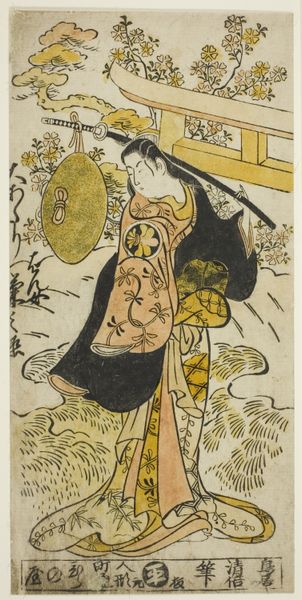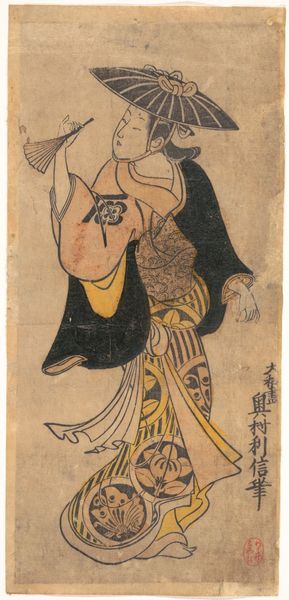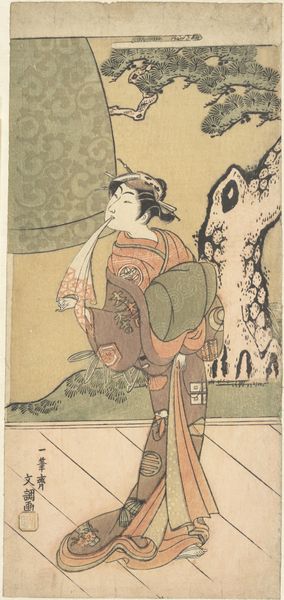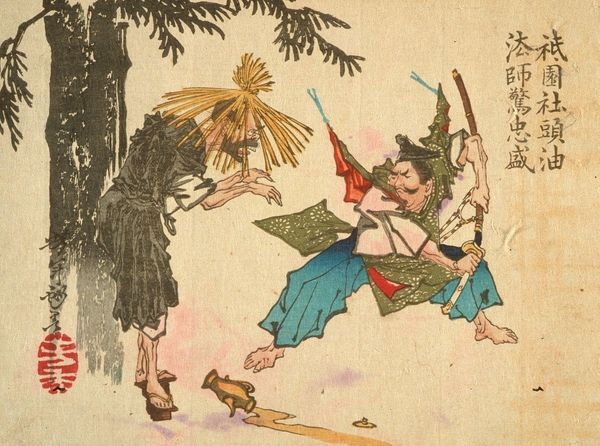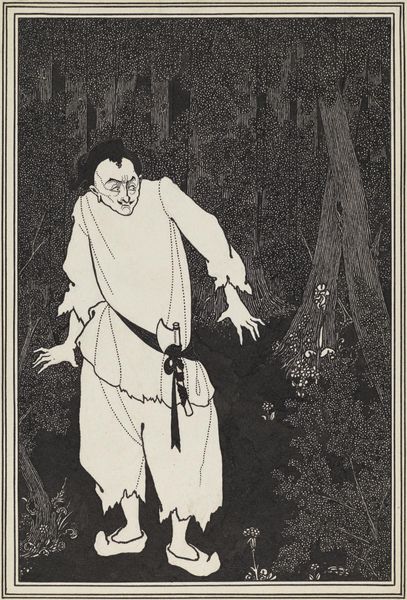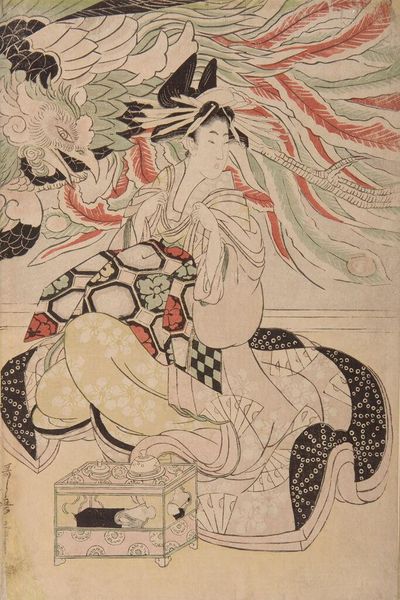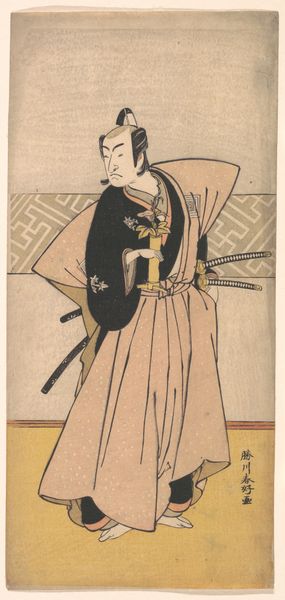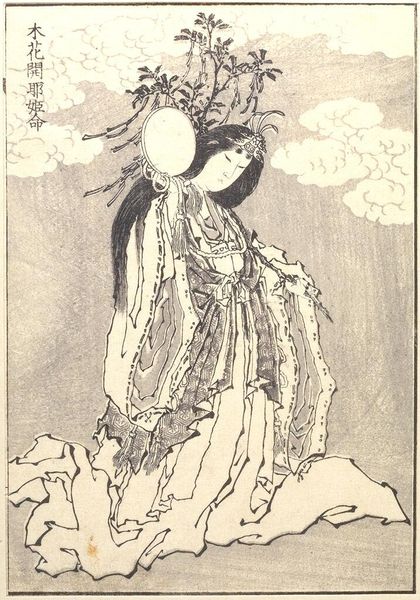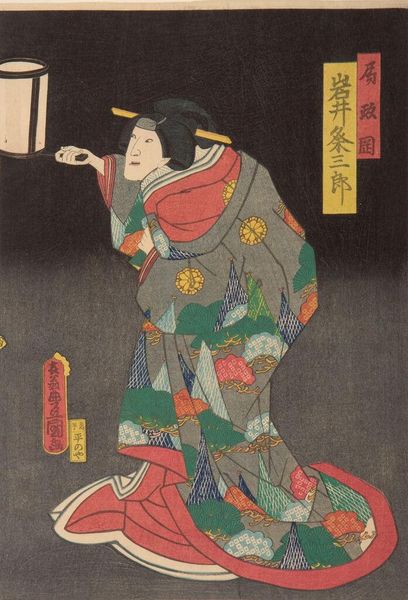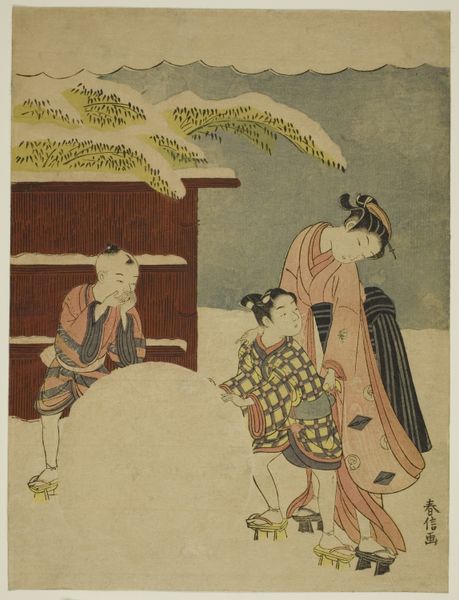
drawing, paper
#
portrait
#
drawing
#
quirky illustration
#
art-nouveau
#
blue ink drawing
#
childish illustration
#
cartoon like
#
cartoon based
#
old engraving style
#
cartoon sketch
#
paper
#
personal sketchbook
#
line
#
symbolism
#
sketchbook drawing
#
cartoon style
Copyright: Public domain
Ethel Reed designed this cover for “Arabella & Araminta Stories,” which was probably created around the end of the 19th century. The image of a young girl in silhouette walking in a cultivated landscape points us to a particular set of cultural values that were in circulation at the time. Notice how the girl appears in the guise of a fairy-tale figure. In contrast, the trees that frame her have been pruned into formal shapes, an allusion to institutional authority taming wild nature. The girl’s dress and open gaze suggest a child whose innocence has yet to be compromised by education or socialization, which suggests a certain resistance to the structures of adult power. Looking at the history of children’s book illustrations, we can see how notions of childhood innocence have changed over time. By comparing this work to other examples, we can begin to understand better the social assumptions that shaped its production and reception.
Comments
No comments
Be the first to comment and join the conversation on the ultimate creative platform.
